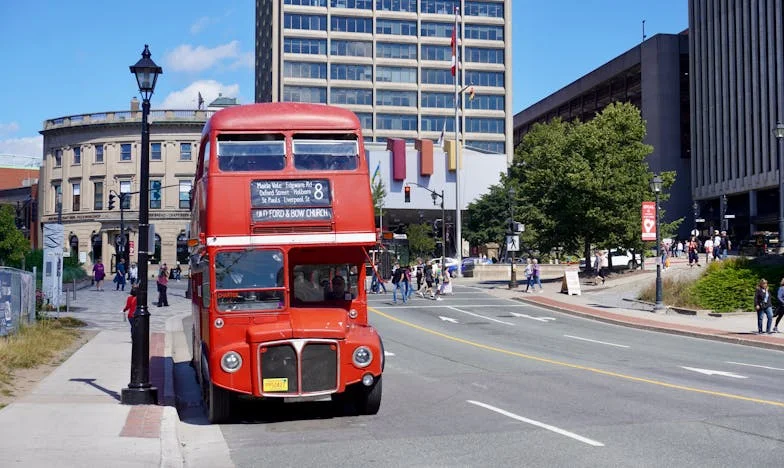When Family Tides Turn: The Inheritance by the Sea
“Katherine, it’s about Dad’s house,” my brother Mark’s voice cracked through the speakerphone, slicing through the quiet hum of my Boston apartment. I froze mid-stir in my coffee, the spoon clattering against the countertop. “Just you and me—and Justine. Saturday. We need to talk.”
He didn’t mention spouses or kids. Not my husband Tom, not Mark’s wife, not even our youngest sister’s boyfriend who always tagged along. Just the original three: Mark, Justine, me. The ones who’d grown up running barefoot across the salt-worn floorboards of our family’s old beach house on the Cape, chasing summer storms and secrets.
“Is Mom okay?” I asked, heart pounding. I could hear Mark swallow, the silence stretching. “It’s not about Mom. Just… come. Please.”
Tom came into the kitchen, concern wrinkling his brow. “Is everything alright?”
I nodded, though my stomach twisted. “Mark wants a family meeting. Saturday. Just the siblings. He sounded—different.”
Saturday came with a heavy gray sky, the kind that threatened to spill rain but held back, as if the clouds were waiting for the outcome of our meeting. I drove the two hours to the Cape, hands clenched on the steering wheel, memories flickering with every mile. The house loomed at the end of the gravel lane, battered by the years but stubbornly standing, its shingles wind-battered and proud.
Mark was already inside, his truck parked at a crooked angle. Justine arrived moments later, clutching a steaming coffee and her phone, eyes wary above the rim of her cup. We hugged, stiffly, like people who’d forgotten how to be siblings.
We gathered at the kitchen table—the same one where we’d argued over Monopoly games as kids, the same one where Dad used to carve Sunday roasts. Mark cleared his throat. “I’ll just say it. Dad’s will came through. We’re inheriting the house. Together.”
The words hung in the air, heavy and electric. I felt a rush of relief and dread. For years, the house had seemed distant, a relic of our childhood and Dad’s stubbornness. Now it was ours—and with it, all the unresolved fights and fears.
Justine’s eyes flashed. “So we share it? What about the taxes? The repairs? I can barely make rent in Somerville, let alone pay for a leaky roof.”
Mark leaned in, voice tight. “We need to decide what to do. Sell it, split the money—or keep it. But we all have to agree.”
A storm broke outside, wind rattling the windows. Inside, the tension grew. I remembered the summer Dad left for good, the silent dinners, Mom’s red-rimmed eyes. I remembered Mark storming out at seventeen, promising never to come back. And Justine, always the peacemaker, trying to hold us together with jokes and late-night talks.
“Why now?” I said, my voice trembling. “We haven’t been a family in years. Why should we pretend now that we care?”
Mark’s face hardened. “Because it’s what Dad wanted. He left us this place so we’d have to face each other. Maybe fix what we broke.”
Justine’s voice cracked. “Or maybe he wanted to punish us. Tie us together so we’d never be free.”
A silence fell, thick as fog. I looked at my siblings—their faces older, more tired than I remembered. We were strangers, bound by blood and a crumbling house by the sea.
Arguments erupted. Mark wanted to renovate and rent it out, use the income for family gatherings. Justine wanted to sell, pay off debts, and never look back. I was torn, longing for the summers we’d spent here, the way the ocean seemed to wash away pain, but knowing we could never go back.
“Don’t you remember the last time we were all here?” Justine’s voice rose. “Dad was drunk. You two fought. I hid in the attic. Why would I want to keep that?”
Mark thumped the table. “That was years ago! We’re not those kids anymore.”
“Aren’t we?” I whispered, tears stinging my eyes. “We never talk except when someone dies. When did we stop being family?”
No one answered. The storm outside crashed, thunder rolling over the dunes.
We stayed late into the night, voices hoarse from arguing, old wounds bleeding into new ones. No decision was made. When I finally left, the house stood silent behind me, its windows glowing with the last light of day.
The following weeks were agony. Texts flew between us—angry, pleading, resigned. Tom tried to help, but couldn’t understand the depth of betrayal and love tangled in every message. My job suffered, my kids sensed my distraction.
One night, Justine called. “I dreamed we were kids again,” she said, her voice small. “Do you ever wish we could go back?”
I swallowed hard. “Every day.”
We met again, this time with our spouses, kids running wild on the beach as we watched from the porch. We talked—not just about the house, but about Mom’s illness, Mark’s divorce, my miscarriages, the ache of growing older. We listened, really listened, for the first time in years.
In the end, we decided to keep the house, to share it—messy, imperfect, together. We fixed the roof, painted the walls, filled the rooms with laughter and arguments and hope. The scars remained, but so did the love.
Now, as I watch my own children chase the tide, I wonder: Can we ever truly heal the wounds of the past, or do we simply learn to live with them, like the salt in the air? What would you do if your family’s future depended on facing everything you’d tried to forget?
